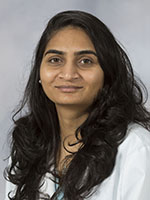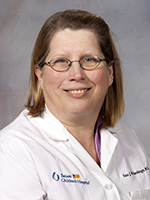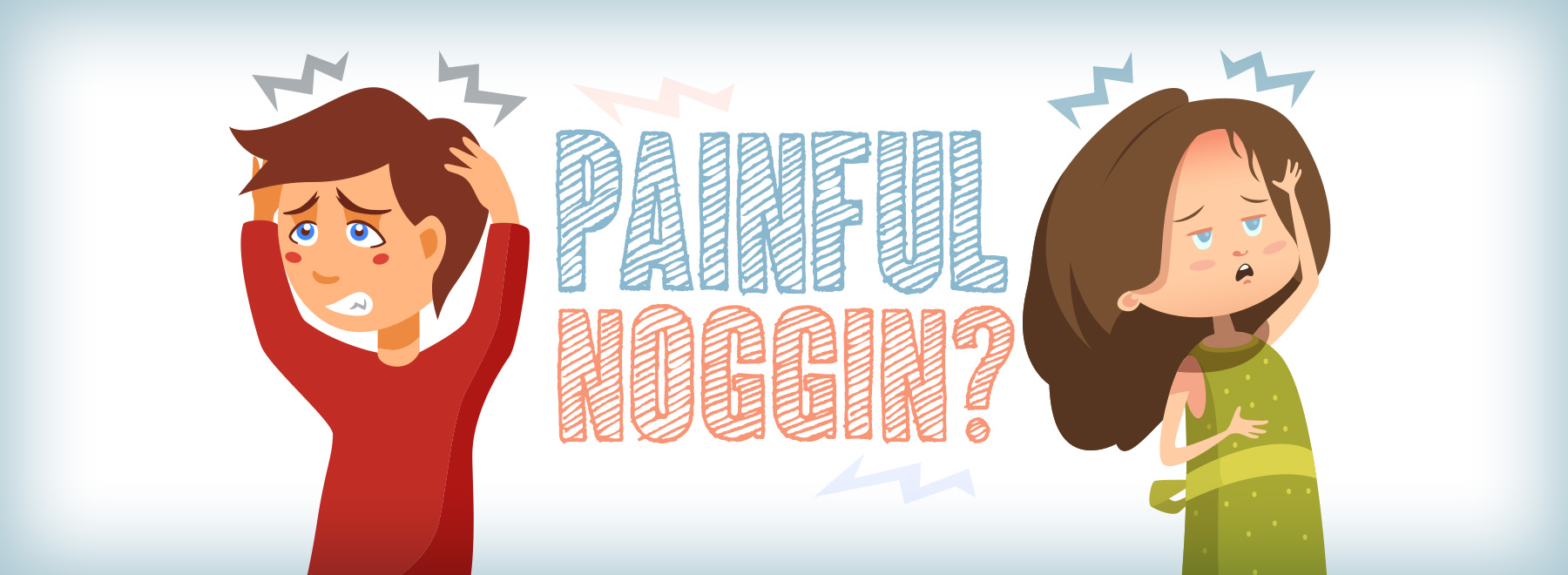What should you do when your child complains of headaches?
Published on Monday, July 1, 2019
By: Annie Oeth, aoeth@umc.edu
Headaches aren’t just for adults.
In the U.S., about 20 percent of children ages 5-17 are prone to headaches, according to National Headache Foundation statistics. Of those, about 15 percent have tension-type headaches while the remainder cope with migraines.

“Headaches are more common in children than asthma or seizures, yet there is not as much recognition of pediatric headaches,” said Dr. Riddhiben Patel, assistant professor of pediatric neurology at the University of Mississippi Medical Center and the state’s only certified pediatric headache medicine specialist.
Patel and fellow Children’s of Mississippi neurologists have researched how children who suffer headaches can draw their symptoms to help in diagnosis. The patients’ drawings included one showing a dagger pointed at a person’s temple.
“Their pain can be severe and debilitating,” Patel said. “It can interfere with academics, activities and family life.”
That was the case with Kalli Dykes, 16, of Richton.
When Dykes’ migraines started in her early teenage years, she began missing school and had to stop playing softball and swimming, said her mother, Holly Dykes.
“She was very sick,” Holly Dykes said. “When she was having a migraine, she really couldn’t function.”
Migraine symptoms include throbbing pain often on one side of the head, but particularly in children, it can be on both sides of the head. Light and noise sensitivity; fatigue; nausea and vomiting; mood changes; and vision changes – or an “aura” – are other migraine symptoms.
For the past year, Kalli Dykes has received Botox injections at the Children’s of Mississippi headache clinic at UMMC’s pediatric specialty clinic in Jackson.
“These have made a big difference,” she said.
A rising junior at Richton High School, Kalli Dykes enjoys walking, swimming and a life with much fewer headaches.

Dr. Sara Weisenberger, UMMC associate professor of pediatrics and medical director of Children’s of Mississippi’s Complex Care Clinic at the Jackson Medical Mall Thad Cochran Center in Jackson, said parents whose children suffer frequent headaches should take them to see their primary care provider, whether in pediatrics or family medicine.
“The physician would have to look at the child’s medical history and do a physical, and then could need to sort out the symptoms to find the cause of the headaches,” Weisenberger said. She said repeated headaches might prompt a referral to a pediatric neurologist, an allergist or an ophthalmologist.
Thankfully, the vast majority of children’s headaches are not serious, but some headaches and related symptoms mean emergency care should be sought.
The American Academy of Pediatrics recommends seeking care right away if your child has sudden, severe head pain coupled with confusion, double vision, sleepiness or projectile vomiting. Headaches with stiffness and pain in the neck and fever are also a cause for an emergency room visit.
A visit to a pediatrician is called for when headaches are a daily occurrence or return with greater pain. Headaches with vomiting or nausea; light and sound sensitivity and numbness; and pain following a head injury that doesn’t go away after a week also call for medical attention, according to the AAP.
Weisenberger and AAP physicians recommend being cautious in giving children over-the-counter pain medications such as Acetaminophen (Tylenol) or Ibuprofen (Motrin or Advil). Using more than three doses per week can lead to medication overuse headaches, which occur when a patient becomes dependent on doses. This leads to headaches becoming more frequent and more painful.
The AAP recommends keeping a headache diary, noting the dates and times of headaches; the duration; the symptoms; what relieved the pain or worsened it; and whether anything specific happened that day, such as a test at school or consumption of a certain food.
Sharing this information with your child’s primary care provider can aid in making a diagnosis.
To make an appointment with a UMMC Complex Care Clinic physician, visit www.umc.edu/childrens or call (888) 815-2005.
The above article appears in CONSULT, UMMC’s monthly e-newsletter sharing news about cutting-edge clinical and health science education advances and innovative biomedical research at the Medical Center and giving you tips and suggestions on how you and the people you love can live a healthier life. Click here and enter your email address to receive CONSULT free of charge. You may cancel at any time.



